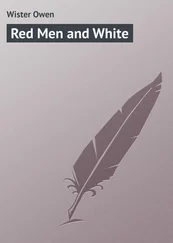Daniel knew that people like Barbara saw this daily commute as the epitome of American cowardliness, the leading edge of a new era of asymmetrical warfare. Fighter pilots going to battle without having to fight, without risking anything more than a speeding ticket or a traffic accident. But it wasn’t that simple. War, as Daniel had learnt, was never simple.
It was true there were still days when he wished he was back in the cockpit 8,000 miles away, risking his life with the patrols on the ground rather than just watching them work. And it was also true he missed the flying itself. Not just the valour of it — the thread that unwound back to the code of medieval knights — but also the pure experience. The victory over gravity, the surge and press of an F-16’s afterburners, the delicate touch of such power, whole countries rushing under his wing. The smell of the plane’s metal, and the sound of it, straining at 60,000 feet. On his very first training flight Daniel had fallen in love with the sky up there, a treasure to be owned only by those anointed to fly at such height, such speed. The blue of glazed porcelain, their contrails like fine paint strokes across its finish.
It was a romance, he knew, but a powerful one. And it had, after all, been this romance that made him want to be a pilot in the first place. His grandfather had flown F-86s on the Yalu River in Korea. His stories of those days, illustrated by a handful of black-and-white photographs, had caught the imagination of the young Daniel. Tales of single combat against MiG pilots they never met or knew, but with whom they shared those skies like brothers. The silver flashes of a sortie returning, the roar of their accelerating engines each morning. The beautiful routine of hunting, together and alone, in foreign cloudless skies.
It was his grandfather’s stories, as much as his family or the troops on the ground, that Daniel was increasingly trying to protect when he piloted a Reaper or a Predator from his screens in Creech. The inheritance of his grandfather and every other pilot who’d taken to the skies in combat. Because as well as being one of the country’s first Unmanned Aerial Vehicle pilots, Daniel would also be, he was sure, one of the last to have ever flown missions in a manned craft. Already the military was training young marines, eighteen, nineteen years old, who’d go into missions with no prior experience of aerial combat. The joystick he now handled through each shift had recently been remodelled on that of the Sony PlayStation. Daniel didn’t like it, but he knew it made sense. Without knowing it, under the eyes of their parents and siblings, America would train her future pilots in bedrooms and living rooms across the country. They would fight as if the world was a free-fire zone, cocooned within the hum of servers and computers, but never the sounds of the sky, of an engine’s torque, the wing’s strain, the purity of its thinning air.
For Daniel, who’d felt the tipping of a wing, who’d known the adrenaline of fear, it had become part of his duty to translate the essence of those manned decades into the control stations of Creech. The knowledge of being both the harbinger of death and its prey, of hearing the sound of your speed, of feeling, at one and the same time, vulnerable and invincible. A respect for the threat of the earth. A memory of air.
―
Thirty minutes after he’d reversed out of his drive in Centennial Hills, Daniel and Maria were pulling up outside the gates of Creech Air Force Base. As they waited for the guard to wave them forward, Daniel looked along the perimeter fence. Creech, it had to be said, still didn’t look like much of a base. Indian Springs, the town it edged, was small, only 1,500 people at most, but its outer streets drifted up to within touching distance of the highway at Creech’s border. Trailers and caravans, even an old Slipstream, all listed within sight of the huts and hangars inside the fence. When Daniel had first started there, over a year before the 432nd was officially reactivated, they’d had problems with local cats getting in, giving birth to litters of kittens in the garages. The only building next to the base was the Indian Springs Casino, a faded two-storey structure with a café, a handful of slot machines, and the Flying Aces Bar. After that, as far as Daniel knew it was just more desert, dotted by a few nature reserves, all the way to California and Yosemite National Park.
The guard called them forward, took the briefest of glances at their passes, then waved them through with a curt salute. He was one of the older guys, maybe stationed there since before the renaming. A veteran of the Gulf, perhaps. As Daniel drove through he wondered what he must think of them, arriving like this. Creech might not look like much of a base, but then he and Maria, in their sneakers, T-shirts, and shorts, well, they didn’t look much like a flying crew, either.
But they were. And this is what Barbara and their other detractors always forgot. They weren’t risking their lives when they flew. They weren’t exposed, physically, to the war. But that didn’t mean they weren’t exposed. There were still pressures, other risks, ones Daniel was only just coming to understand, the contours of his combat experience altering as fast as the technology he flew.
For Daniel, and although they never discussed it, he suspected for many of his colleagues too, the greatest pressure of flying UAVs was one of witness. They were paid to watch. This was their job. To record hundreds of thousands of hours of footage that was then watched again, processed by soldiers and analysts in Afghanistan and back at the CIA in Langley. When necessary, they were expected to strike, too. And then watch again. Which is something Daniel had never done before. In Bosnia, Iraq, Afghanistan, by the time his bombs detonated, his missiles hit, he was already miles away, flying faster than the speed of sound, outrunning even the faint thuds of his own ordnance. At Creech he still didn’t hear his munitions detonate, but despite being even farther from the battlefield, he saw everything. He saw them explode and he saw what they did, sometimes to people he’d followed for weeks. To people he knew. Like the motorcyclist.
―
Daniel had always known the motorcyclist would have to die. His photograph, along with the head shots of others, had been up on the wall in Creech for months. His misdemeanours listed below it dated back to the very start of the invasion in 2003. Daniel had wanted him to die. Even more, he’d wanted to be the pilot on the mission that killed him. The motorcyclist’s name was Ahmed al Saeed, and he had the blood of American soldiers on his hands. Should he get the chance, Daniel, with Maria beside him focusing the cameras, guiding the lasers, wanted to be the pilot to avenge them.
For a period of months they’d tracked al Saeed through the streets of southern Baghdad. They’d watched him drink coffee on plastic garden chairs in the street, visit his grandmother, liaise with a team of insurgents laying IEDs. He’d led them, over those months, to others who were, in turn, followed by other drones, other pilots, and other operators who’d also watched their homes, their cars, their children on screens across America. But Daniel and Maria had stayed with al Saeed, as he’d weaved through the back streets of the city on his motorbike, as he’d collected his son from school. As he’d lived.
He became a familiar, like the regular colleague you see across the office, but to whom you never speak. Daniel started anticipating his weekly routine. His Wednesday game of chess, his coffee after Friday prayers. He was thirty-six years old, just a couple years younger than Daniel, and like him also had two children, a girl and a boy. Then, one day, the order came through. It was time to kill him. It was time for Ahmed to die. According to a source on the ground he would be setting up an ambush for a U.S. convoy. But before Ahmed could hit that convoy, Daniel and Maria, watching from above, would hit him.
Читать дальше











